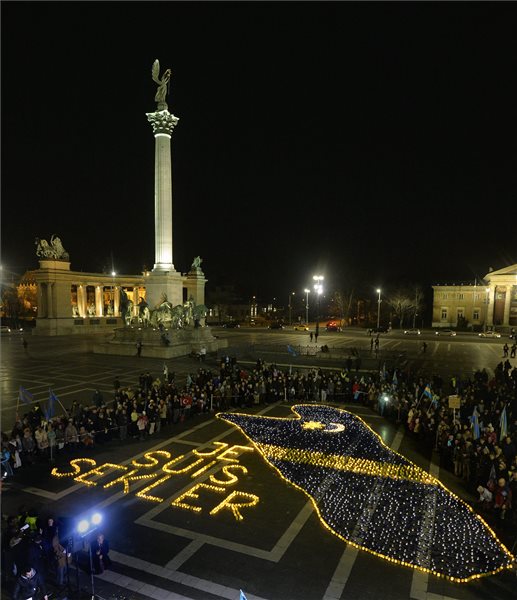Szeklerland
Hefty fine for the organizers of the Szekler autonomy watch-fires

Tens of thousands of people took part in lighting of the borders of Szeklerland, organizers estimate

Where do 100.000 szekler emigrants live around the world?

Romanians freaked out PM Orbán

PM Orban: Europe at stake

Economy minister: Hungary reforms working

Bálványos Summer University opens in Szeklerland

A little Szekler boy makes smile on people’s face – VIDEO

Provocation in Romania – A huge Romanian flag to be flown in Szeklerland

Foundation was established by the British heir to the throne in Transylvania

TODAY – 95th anniversary of the Treaty of Trianon

“CSÍKSOMLYÓI BÚCSÚ” 2015 – Exclusive photo gallery

Hundreds of thousands in Csiksomlyo

Székely flag to become legitimate in Romania

National Public Security Strategy: autonomy claims are a public security threat in Romania

Szekely Freedom Day: commemorations and protests – Photos

Democratic setback in Romania: March 10th Szekler March banned at Targu-Secuiesc

Harghita county: 24 local council resolutions regarding the establishment of Szeklerland administrative region were annulled by the court





 ZH
ZH IT
IT DE
DE HR
HR NL
NL FR
FR JA
JA RO
RO RU
RU ES
ES TR
TR
